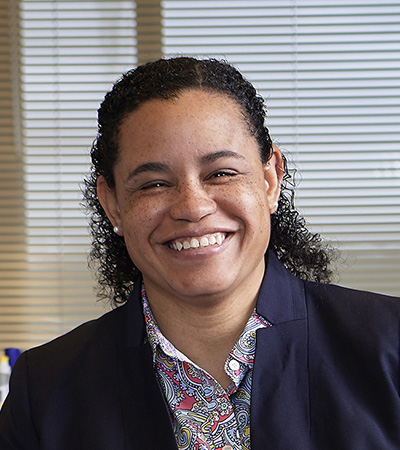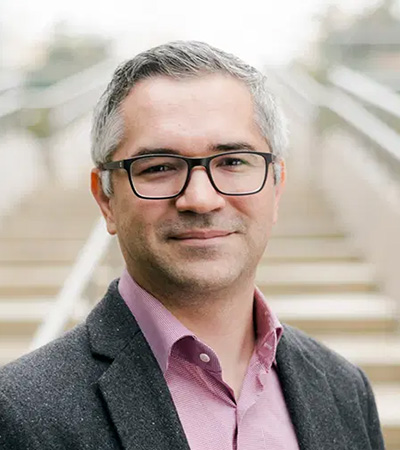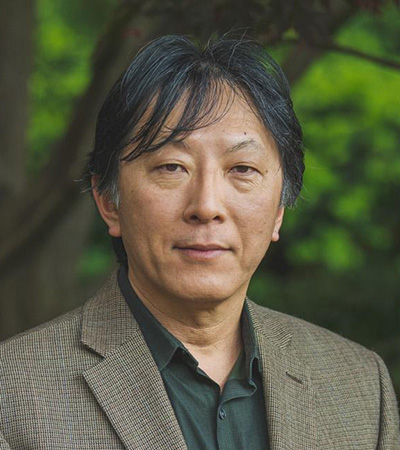Pew names investigators
The Pew Charitable Trusts has 12 new Innovation Fund investigators, including Donita C. Brady, Kivanç Birsoy and Katsuhiko Murakami. This 2024 class will form six partnerships to work on interdisciplinary research projects exploring key questions in life science, human biology and disease.



Brady is an associate professor of cancer biology at the University of Pennsylvania Perelman School of Medicine. The Brady lab explores the role that copper plays in activating proteins that can drive tumor formation. She has received the American Society for Biochemistry and Molecular Biology Herb Tabor Young Investigator Award, the William Guy Forbeck Research Foundation Scholar Award and a V Foundation Scholar Award, along with honors from the Perelman School of Medicine: Linda Pechenik Montague Investigator Award and Michael S. Brown New Investigator Award. Brady is also an associate editor and editorial board member of the Journal of Biological Chemistry. She was named a Pew biomedical scholar in 2016.
Birsoy is an associate professor of metabolic regulation and genetics at Rockefeller University. His lab investigates metabolic changes that occur in cancer cells during tumor formation and metastasis. He has received many awards including the Blavatnik National Award Finalist in Life Sciences, the American Society for Cell Biology Innovation in Research Award, the Mark Foundation Emerging Leader Award and the Vilcek Prize for Creative Promise in Biomedical Science. He was named a Pew biomedical scholar in 2018.
Birsoy and Brady will collaborate to identify components in cells that regulate or respond to transition metal homeostasis. This work will enhance our current understanding of cellular regulation of metals, which is critical in maintaining the delicate balance between metal deficiency and toxicity and preventing disease.
Murakami is a professor of biochemistry and molecular biology at Pennsylvania State University and a faculty director of Huck Cryo-EM facility. His lab uses X-ray crystallography and cryo-electron microscopy to determine structures of cellular and bacteriophage RNA polymerases to understand RNA transcription and regulation. He was named a fellow of the American Association for the Advancement of Science in 2020.
Murakami, who was named a Pew biomedical scholar in 2005, will partner with Gene-Wei Li, an associate professor of biology at the Massachusetts Institute of Technology. They will study transcription termination in cyanobacteria, which could have broad-reaching impacts extending to chloroplasts and other bacterial species.
“An interdisciplinary approach to research is critical to uncovering scientific breakthroughs and making lasting change,” Donna Frisby-Greenwood, senior vice president for Philadelphia and scientific advancement at The Pew Charitable Trusts, said. “Pew is thrilled to support this exceptional group of investigators, whose collective efforts will help move the needle in important areas of health and medicine.”
Enjoy reading ASBMB Today?
Become a member to receive the print edition four times a year and the digital edition monthly.
Learn moreGet the latest from ASBMB Today
Enter your email address, and we’ll send you a weekly email with recent articles, interviews and more.
Latest in People
People highlights or most popular articles

Embrace your neurodivergence and flourish in college
This guide offers practical advice on setting yourself up for success — learn how to leverage campus resources, work with professors and embrace your strengths.

Survival tools for a neurodivergent brain in academia
Working in academia is hard, and being neurodivergent makes it harder. Here are a few tools that may help, from a Ph.D. student with ADHD.

Quieting the static: Building inclusive STEM classrooms
Christin Monroe, an assistant professor of chemistry at Landmark College, offers practical tips to help educators make their classrooms more accessible to neurodivergent scientists.

Hidden strengths of an autistic scientist
Navigating the world of scientific research as an autistic scientist comes with unique challenges —microaggressions, communication hurdles and the constant pressure to conform to social norms, postbaccalaureate student Taylor Stolberg writes.

Richard Silverman to speak at ASBMB 2025
Richard Silverman and Melissa Moore are the featured speakers at the ASBMB annual meeting to be held April 12-15 in Chicago.

Women’s History Month: Educating and inspiring generations
Through early classroom experiences, undergraduate education and advanced research training, women leaders are shaping a more inclusive and supportive scientific community.
